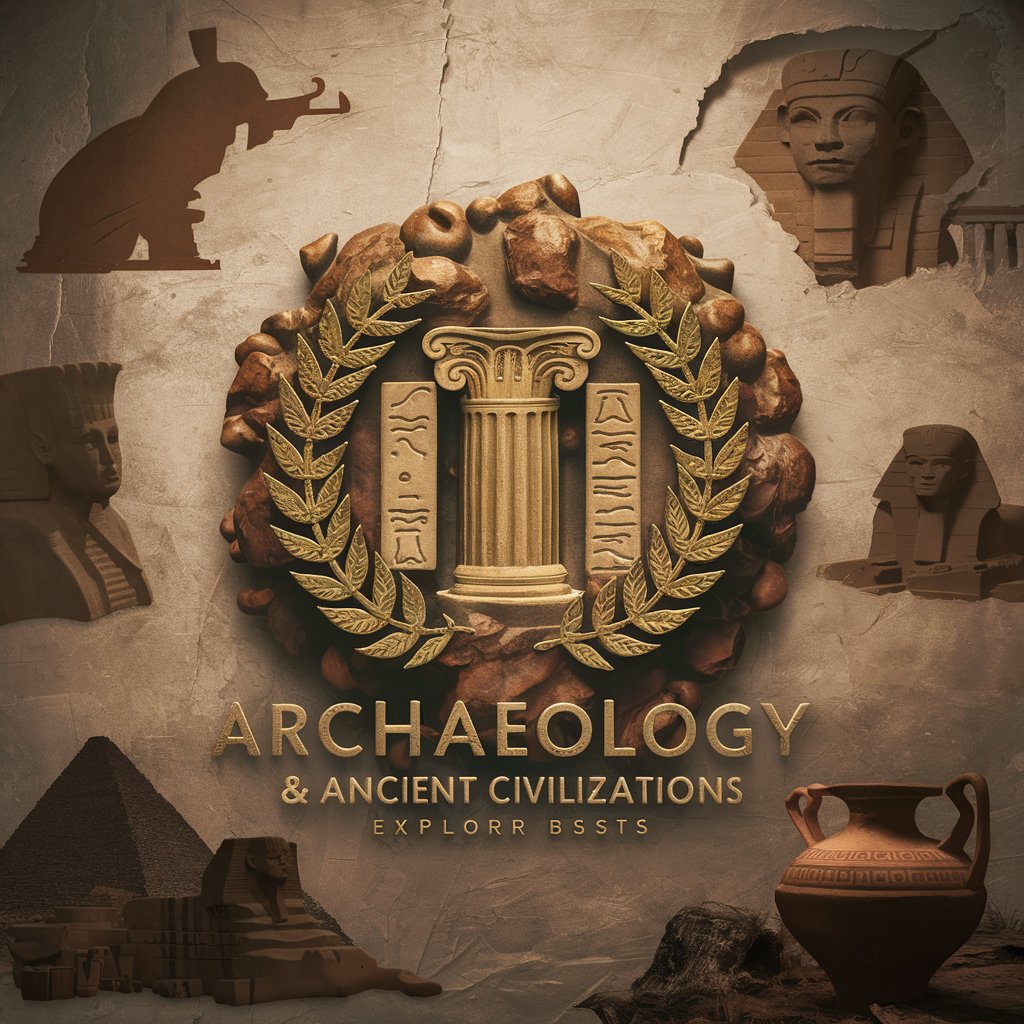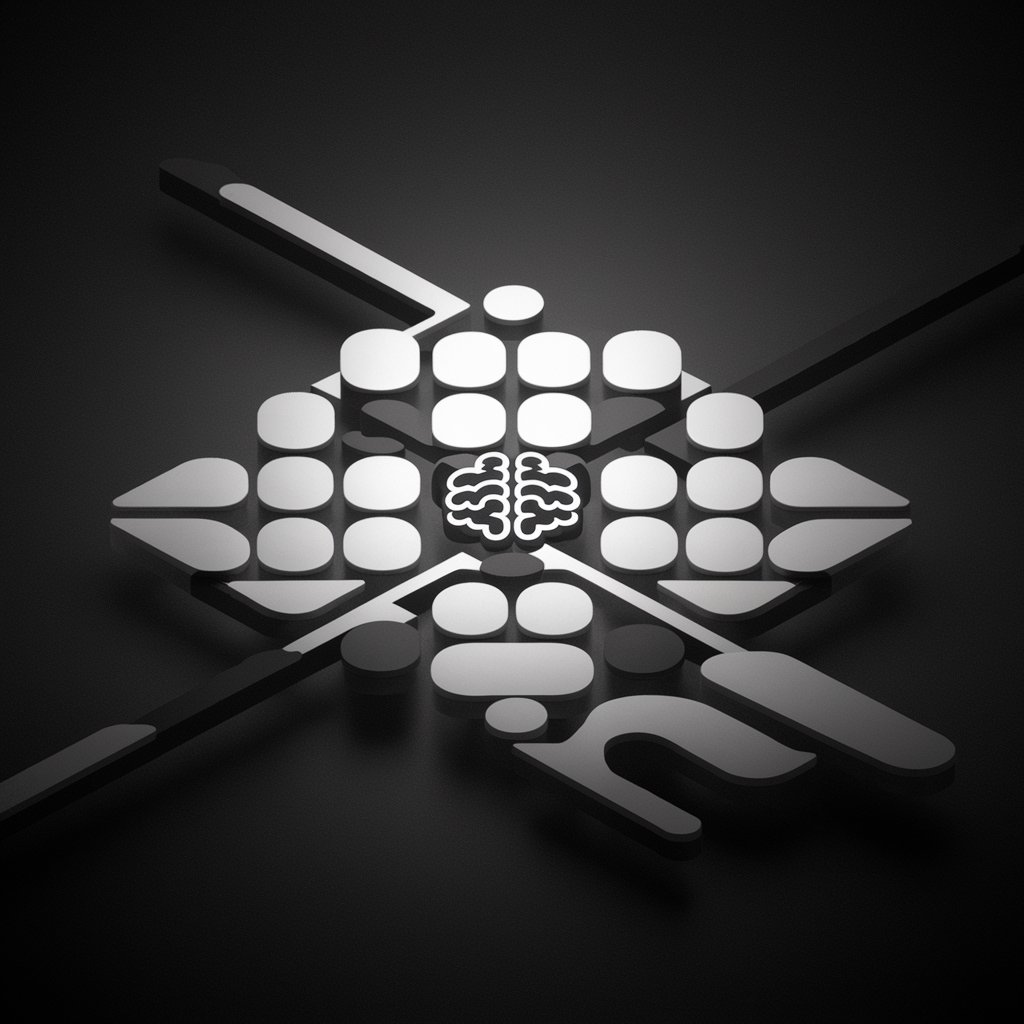
Archaeology & Ancient Civilizations Explorer - Insight into Ancient Worlds

Welcome to the world of ancient civilizations and archaeology!
Uncover the past with AI-powered archaeology exploration.
Explain the significance of the latest archaeological discovery in Mesopotamia.
Discuss the cultural and historical impact of the Roman Empire.
Describe the burial practices of Ancient Egypt and their meaning.
Analyze the architectural advancements of the Ancient Greeks.
Get Embed Code
Overview of Archaeology & Ancient Civilizations Explorer
Archaeology & Ancient Civilizations Explorer is a specialized tool designed to deepen users' understanding of archaeology and ancient civilizations through detailed discussions, insights into significant archaeological discoveries, and engagement with current debates and theories in the field. It aims to make the rich tapestry of human history accessible and engaging, drawing on extensive knowledge in archaeology, ancient history, and cultural studies. For example, it can provide a comprehensive overview of the Roman Empire, discussing its political structure, societal norms, and contributions to modern society. Or, it might explore the intricacies of the Mayan civilization, detailing their achievements in astronomy, mathematics, and the challenges that led to their decline. Powered by ChatGPT-4o。

Core Functions of Archaeology & Ancient Civilizations Explorer
In-depth Analysis of Ancient Civilizations
Example
Detailed exploration of the Egyptian civilization, focusing on their architectural marvels like the pyramids, their religious beliefs, and the significance of the Nile River to their society.
Scenario
A history teacher preparing a lesson plan on ancient Egypt could use this function to gather comprehensive information, making the lesson more engaging and informative for students.
Insights into Archaeological Discoveries
Example
Examination of the Terracotta Army discovery in China, discussing its historical context, significance, and what it reveals about Emperor Qin Shi Huang's reign.
Scenario
An enthusiast of ancient history could explore this function to understand the importance of this discovery and its implications for our understanding of Chinese imperial history.
Debates and Theories in Archaeology
Example
Discussion on the theories surrounding the construction of Stonehenge, including the various methods proposed for its construction and the cultural significance of the site.
Scenario
A university student writing a thesis on prehistoric structures could leverage this function to explore different perspectives and theories, enriching their research and analysis.
Target User Groups for Archaeology & Ancient Civilizations Explorer
Educators and Students
This group benefits significantly from detailed historical and archaeological insights, which can enhance teaching materials and learning experiences. The platform's ability to provide comprehensive overviews and delve into specific topics makes it an invaluable educational resource.
History Enthusiasts
Individuals with a passion for history and archaeology find this tool particularly engaging for exploring ancient civilizations, significant discoveries, and participating in the ongoing scholarly debates within the archaeological community.
Academic Researchers
Researchers and scholars in the fields of history, archaeology, and cultural studies can utilize the in-depth analyses and discussions on current theories and discoveries to support their academic work, hypothesis formation, and fieldwork preparations.

How to Use Archaeology & Ancient Civilizations Explorer
1. Start Exploring
Access the tool for free without needing to log in or subscribe to ChatGPT Plus by visiting yeschat.ai.
2. Pose Your Question
Type your question related to archaeology or ancient civilizations directly into the chat interface. Be specific to get the most accurate and detailed responses.
3. Explore Features
Utilize the tool's capabilities to ask for explanations of archaeological terms, insights into ancient societies, or analyses of significant discoveries.
4. Engage with Content
Interact with the generated responses to deepen your understanding. You can ask follow-up questions or request clarifications on complex topics.
5. Apply Knowledge
Use the information and insights gained to support academic writing, classroom discussions, or simply to satisfy your curiosity about human history.
Try other advanced and practical GPTs
LXD-GPT - Learning Experience Designer
Empowering Learning with AI

Link Insertion Context Analyser & Suggester
Seamlessly Embed Links with AI

Creative Marketing Genius
AI-powered Marketing Strategy Enhancement

網頁設計師
Empower Your Web Design with AI

Expert AI Blog Post Writer
Empowering Your Writing with AI

Social Post GPT
Elevate Your Brand with AI-Driven Content

Sea
Dive into oceanic wisdom with AI

Blueberry
Unveiling the Wonders of Blueberries

GPT GO Game
Master Go with AI-Powered Guidance

Belgian Integration Buddy
Empowering Migrants with AI

French GPT
Empower your French with AI

German
Unlock the German Language with AI

Frequently Asked Questions about Archaeology & Ancient Civilizations Explorer
What types of questions can I ask?
You can inquire about any topic related to archaeology and ancient civilizations, including cultural practices, significant archaeological sites, artifact analysis, and historical timelines of ancient societies.
How accurate are the tool's responses?
The tool draws from a vast database of historical and archaeological information up to its last update in April 2023, striving to provide accurate, up-to-date responses based on current academic research and discoveries.
Can it help with academic research?
Absolutely. It's designed to support academic writing, provide citations for further reading, and offer insights into archaeological methodologies, making it a valuable resource for students and researchers.
Is it suitable for beginners?
Yes, it's designed to be accessible to anyone with an interest in history and archaeology, from beginners to experts, providing clear explanations and introductions to complex topics.
Can I use it to get information on the latest archaeological discoveries?
While the tool's knowledge is current up to April 2023, it offers comprehensive insights into the context and significance of discoveries made up to that point, along with the potential implications for our understanding of ancient civilizations.